Technology and Ethics in Dietetic Practice HSN3058
- Subject Code :
HSN3058
Part A: Investigating the Impact of Fitbit Watch on Dietitians
Technological Perspective
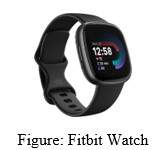
The Fitbit watch is a wearable device. It documents diverse health metrics, namely physical activity, heart rate, sleep patterns as well as dietary habits for that matter. For dietitians, this technology substantiates real-time data concerning clients daily habits. This offers a more comprehensive view of their nutritional intake as well as activity levels. The integration of Fitbit data into dietitian consultations not only enables more personalized attributes but at the same time it also formulates data-driven recommendations. However, the rapid advent of technological amelioration essentially complicate present challenges for health professionals when it comes to staying current with the latest devices and software attributes. It is imperative to affirm that both professionals and clients can easily interpret the data in an efficacious manner so that holistic healthcare can be provided appropriately.
Clinical Perspective
From a dietitians standpoint, Emerllahu (2022) arguably contended that Fitbit data broadens the horizon of dietitians for the sake of documenting the progress of clients outside of formal consultations. This not only assist in the process of discerning patterns in nutrition and physical activity, but simultaneously this real-time monitoring open up new horizon when it comes to delineating more timely interventions as well as adjustments in dietary plans (Emerllahu, 2022). However, Luo et al. (2019) pinpointed that over-reliance on wearable technology pose immense risks - if the data garnered is inaccurate or misinterpreted. For instance, Fitbit's calorie estimates along with nutritional tracking features are not meticulously precise in nature from a medical standpoint. This in turn inherently results in potential misinformation (Luo et al., 2019). Keeping this in hindsight, it is imperative for dietitians to balance the usage of such technology with professional expertise. The data must serve as a supportive tool instead of a definitive measure of health.
Social Perspective
In consonance with Abeltino et al. (2024), the social ramification pertinent to wearable technologies like Fitbit revolves around its capability of advocating healthier lifestyles. Dietitians can essentially foster a greater sense of accountability and motivation in clients by encouraging clients to actively engage with their health data (Abeltino et al., 2024). However, Chen et al. (2017) arguably pointed out that the social pressure exerted in order to satiate fitness goals or compare data with others inherently result in anxiety as well as unhealthy demeanor such as restrictive dieting or over exercising (Chen et al., 2017). Henceforth, it is prudent for dietitians to be mindful of these social factors. Their work needs to cultivate a balanced and health-focused approach that values holistic well-being over competitive metrics.
Legal Perspective
The legal standpoint delineates that the usage of Fitbit data in dietetic consultations concentrate upon significant issues concerning data privacy and security. Fitbit garners sensitive health data that is shared with third-party applications. This is exposed to cyberattacks. Mauldin et al. (2021) argued that dietitians must affirm that clients are aware of the manner in which their data is being used, stored as well as safeguarded - especially in compliance with laws such as the Health Records Act 2001 and other privacy legislation relevant to health professionals for that matter. It is prudent to obtain informed consent from clients so that they are debriefed regarding their rights in terms of data access and control (Mauldin et al., 2021).
Ethical Perspective
Chen et al. (2018) arguably pinpointed that ethically, the usage of Fitbit in dietetic practice raises concerns regarding equal access to technology. Not all clients are familiarized with the concept of using wearable devices. This not only results in potential disparity when it comes to holistic care, but on the similar note, the pressure to conform to the quantified metrics of health data inevitably conflict with individual well-being. This is particularly relevant for clients with eating disorders or body image concerns (Chen et al., 2018). Dietitians must navigate these ethical dilemmas by affirming that wearable technology is integrated into care in a way that prioritizes the client's mental, emotional as well as physical health. In addition to that it is also imperative to keep in mind sight that the usage of such technology is tailored for the individuals preference.
Part B: Survey Design and Analysis
Survey Questions and Responses
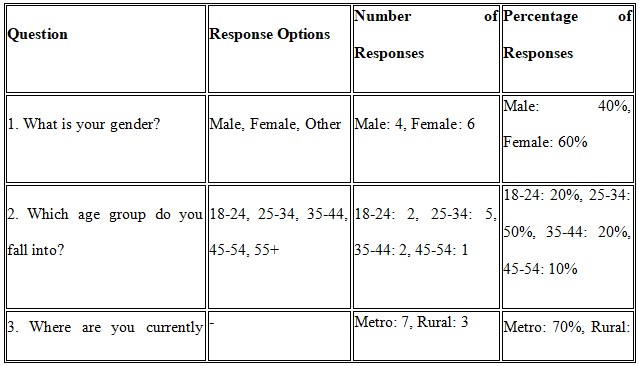
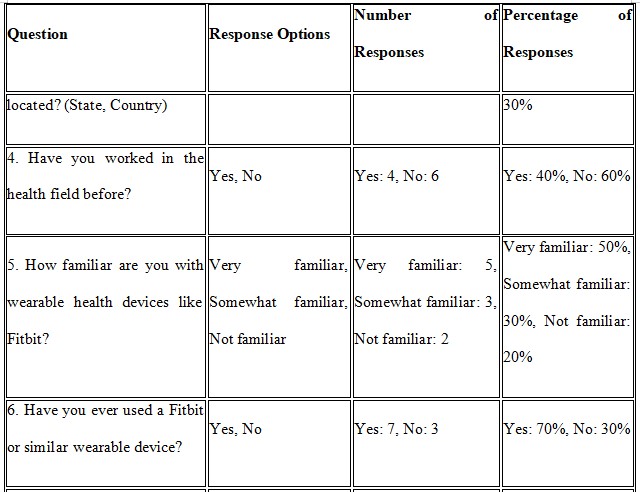
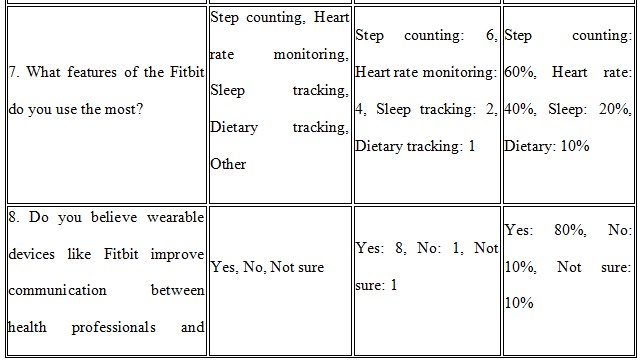
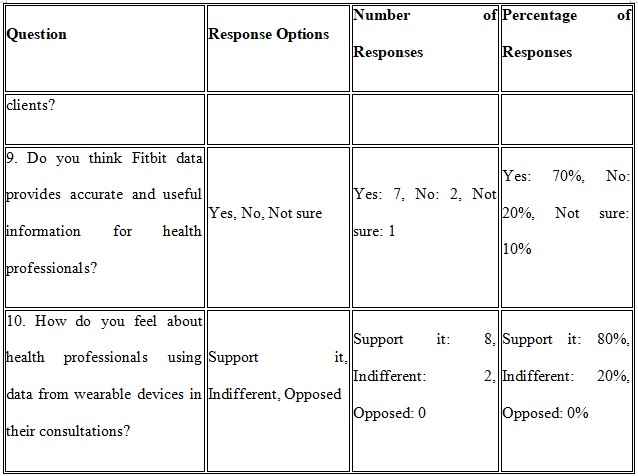
Analysis of Responses
The responses accumulated from the aforementioned survey essentially depicts that the target sample is familiarized with wearable health devices like Fitbit. This is evident from the fact that approximately 70% of participants have used one such device. The most commonly utilized attributes were step counting and heart rate monitoring. On the contrary, dietary tracking was the least used feature. A significant majority (80%) firmly believe that Fitbit devices has the potency of ameliorating communication between healthcare professionals as well as clients for that matter. 70% of the respondents perceived that the data depicted is accurate and useful for health professionals. All in all, it can be inferred that participants showed strong support for the usage of wearable device data in healthcare consultations.
These results essentially posits a positive perception of Fitbits integration into dietetic practice. However, there are few participants expressing some uncertainty about data accuracy and the integral efficacy of wearables in healthcare. This can be construed into the fact that there are scope for further refinement, particularly in terms of augmenting the precision of data as well as educating clients about its interpretation.
Part C: Case for the Health Service Provider
According to the survey feedback and on the ground of the accumulated information concerning the technological, clinical, social, legal as well as ethical ramification - it can be recommended that the Health Service Provider should proceed with ameliorating services that integrate Fitbit and other wearable health technologies. The potential for real-time data tracking offers immense clinical benefits. Coughlin et al. (2017) argues that it enables dietitians to offer more personalized care. In addition to that, the positive social ramification of promoting healthier habits aligns with the service provider's goals as well (Coughlin et al., 2017). However, Peng et al. (2023) contends that legal and ethical considerations regarding data privacy and access disparities must be carefully addressed through robust data protection policies and equitable access initiatives (Peng et al., 2023). Hence, it can be inferred that the integration of wearable technologies into dietetic care has the potency to augment service delivery, client satisfaction as well as health outcomes.
Are you struggling to keep up with the demands of your academic journey? Don't worry, we've got your back!
Exam Question Bank is your trusted partner in achieving academic excellence for all kind of technical and non-technical subjects. Our comprehensive range of academic services is designed to cater to students at every level. Whether you're a high school student, a college undergraduate, or pursuing advanced studies, we have the expertise and resources to support you.
To connect with expert and ask your query click here Exam Question Bank

